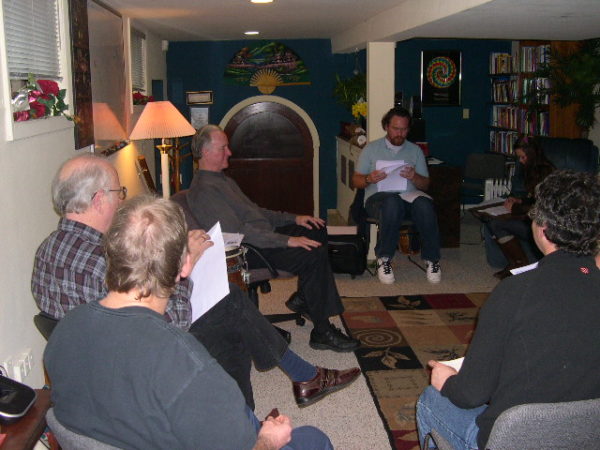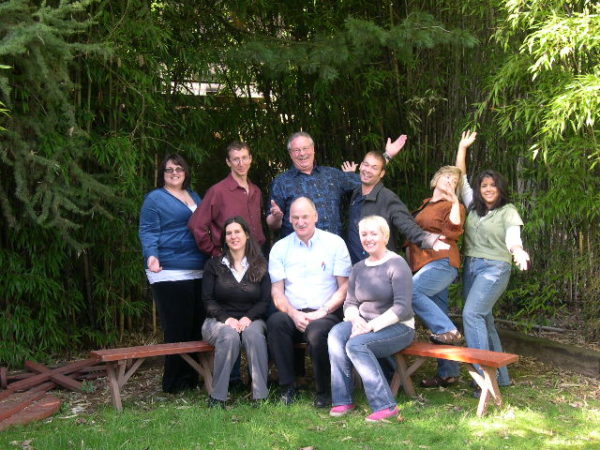 How and where does a person train to become a hypnotist?
How and where does a person train to become a hypnotist?
Hypnosis and Hypnotherapy training are available in a number of modalities, including experiential workshops, online training, book learning, listening to audio classes, or mentorship.
As an instructor and full-time hypnotherapist I would recommend you find a class where you can learn with an experienced instructor (10+ years) and participate with positive encouragement. Reading books or doing online classes is useful for gathering information, but you need to understand abreaction, special techniques in helping people in rapport. Understanding the reptile brain and how people can naturally make changes, much like Milton Erickson practiced, doesn’t come from a book. It comes from a special connection passed from a good hypnotherapist, which isn’t necessarily a medical doctor.
When doctors learn about hypnosis it brings them to another field of understanding. Hypnotherapy and Hypnosis are similar, except that the former has modalities for assisting people with releasing weight and pain. More of a body healing process. The later deals with motivation.
Organizations and Schools
 In Oregon, the Oregon Hypnotherapy Association lists schools that have integrity, hold membership in the organization, and are watched by the community. The National Guild of Hypnotists has lots of classes, although a person can learn to be a hypnotist, then get certified as a teacher, and start teaching. Some students come out of these classes with a speed teaching that doesn’t give them the experience of a knowledgeable practitioner who has been doing the work for years.
In Oregon, the Oregon Hypnotherapy Association lists schools that have integrity, hold membership in the organization, and are watched by the community. The National Guild of Hypnotists has lots of classes, although a person can learn to be a hypnotist, then get certified as a teacher, and start teaching. Some students come out of these classes with a speed teaching that doesn’t give them the experience of a knowledgeable practitioner who has been doing the work for years.
Choose a program that interests you, supports you, has been around for a while, and isn’t likely to pack up and leave soon. What is meant by this is that the instructor isn’t just going to fly into town for a week-end, give you a certificate, and leave you without support.
If you do choose someone in online training, ask them for references. Be sure they can respond via email. Since I’m usually in session or training on the week-ends, it might take me a couple days to get back to people, but I always respond.
Size of class can change the experience. Some classes are specialized such as pediatric hypnotherapy or past life regression. Our classes are for four to twelve students and everyone receives attention, is supervised, and has time for questions and answers. Large classes can be loud, mostly lecture, and if the instructor doesn’t have time … you may not get what you need.
Why are you wanting to learn hypnosis? The field is open and everybody is different. Talk about this with the instructor and see if this meshes with the program you want to go through or study. Some people enter hypnosis training for the experience and fun. People who have gone through cancer, quit smoking or drugs or alcohol, or overcome fears or issues become wonderful practitioners!
If you are doing this as a business, take the time to perform due diligence to see how saturated the market is in your area.
 Are you too old or too young? Age in being a hypnotherapist isn’t an issue. Young and especially elder practitioners can have superb talent.
Are you too old or too young? Age in being a hypnotherapist isn’t an issue. Young and especially elder practitioners can have superb talent.
One father brought his preteen daughter in to a class, and she went through an entire private training, because she wanted to teach her uncle to quit smoking. It meant so much to her that the father supported both of them in class. Children obviously should be supervised, but she was truly amazing and came with a different perspective … one that other children could relate to. Yes, the uncle received the benefit from the training and is a nonsmoker! (Yay!) People in rapport with a hypnotist will find it safe to make changes.
All hypnosis is self hypnosis. No, you can not make another person do something against their value system. All hypnosis is self hypnosis.
 Interview instructors.
Interview instructors.
Talk to their students. Realize that not everyone will enjoy the same learning process that you do, so ask about your learning style and if that is supported.
Here are more questions to ask the school or instructor:
- Who are you?
- Why did you choose hypnosis? What was your previous career?
- How long have you been in practice as a practitioner and instructor?
- Who are your teachers and mentors?
- Could you show me the manual? Is this an extra fee or part of the course?
- How long is the training ( 150+ hours is best)?
- Is this basically lecture, practice, and how many hours is self-study?
- Where is this training conducted and how big are the classes?
- How many hours a day is the training and are there breaks?
- When is this training offered? How many hours in total?
- Will it be offered in the future?
- Is there more than one instructor or will there be outside presenters?
- What is your favorite technique? Can you share an example of when you used this technique (they should be able to tell you they have permission to share, as sessions are confidential).
- Is your training recognized? By whom?
- May I speak with some of your students?
- Is there a pre-requisite to this course and if so, what are the requirements?
- Will I receive a certificate or is this a degree program?
- Is it legal in this state to do hypnotherapy and hypnosis? How can I practice? What can I do (i.e. weight loss, motivation, phobias, etc.)
- Is it okay to return for a class or two after the training? How about if I’m sick or have to miss a class, can I make it up? What’s involved in that?
- Bottom line is how much will the class tuition/fee be? Can I pay in installments and do you offer a discount for prepay? (NOTE: a really cheap class or one where the instructor says they will beat any school is one I would step back and wonder about. It means the school is highly competitive and that may be an attitude in the class.)
Good luck in your learning. When you have the heart and ambition to help people, you can make a real difference for one person, who can affect more people, which can change the world.
If you are interested in training, give us a call. Classes begin soon.
